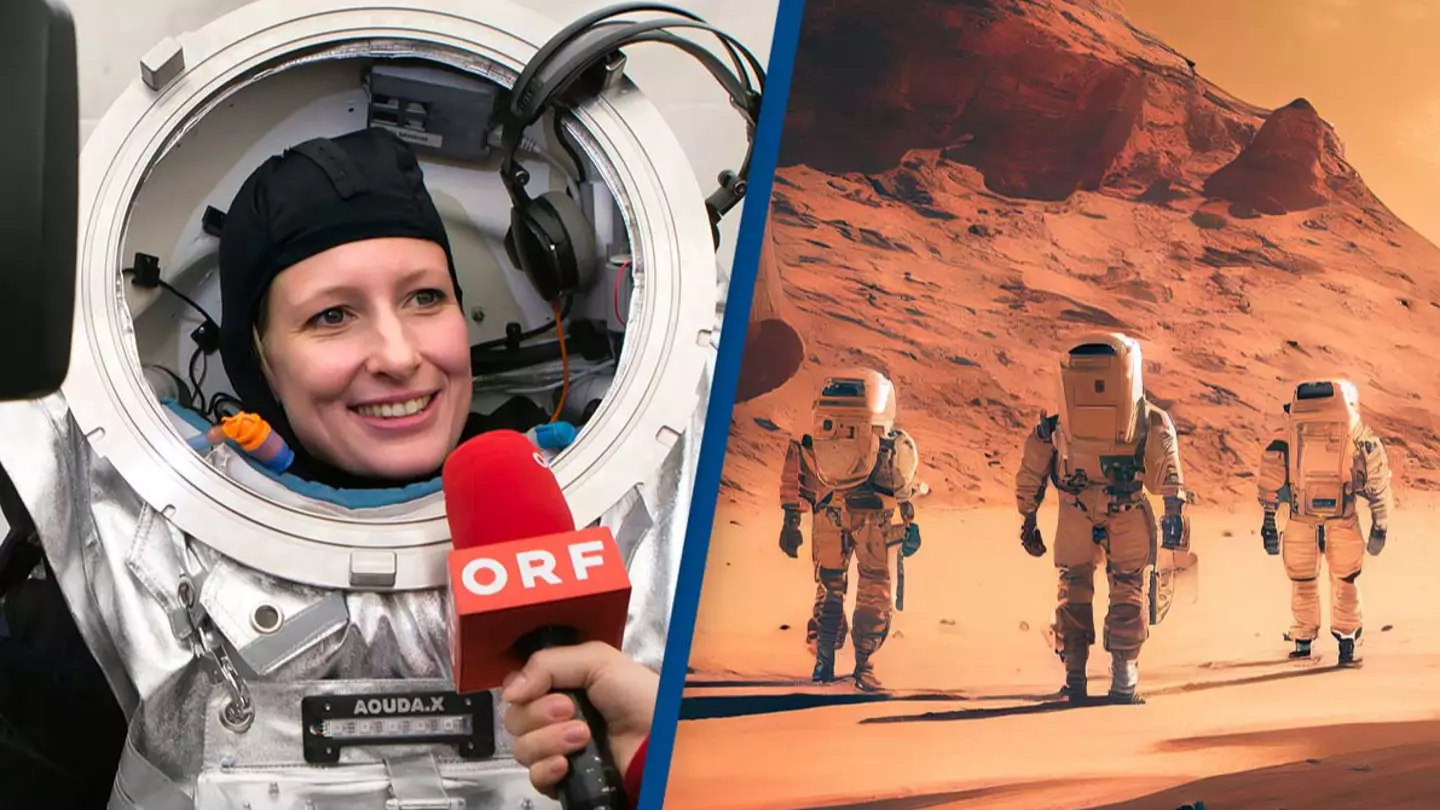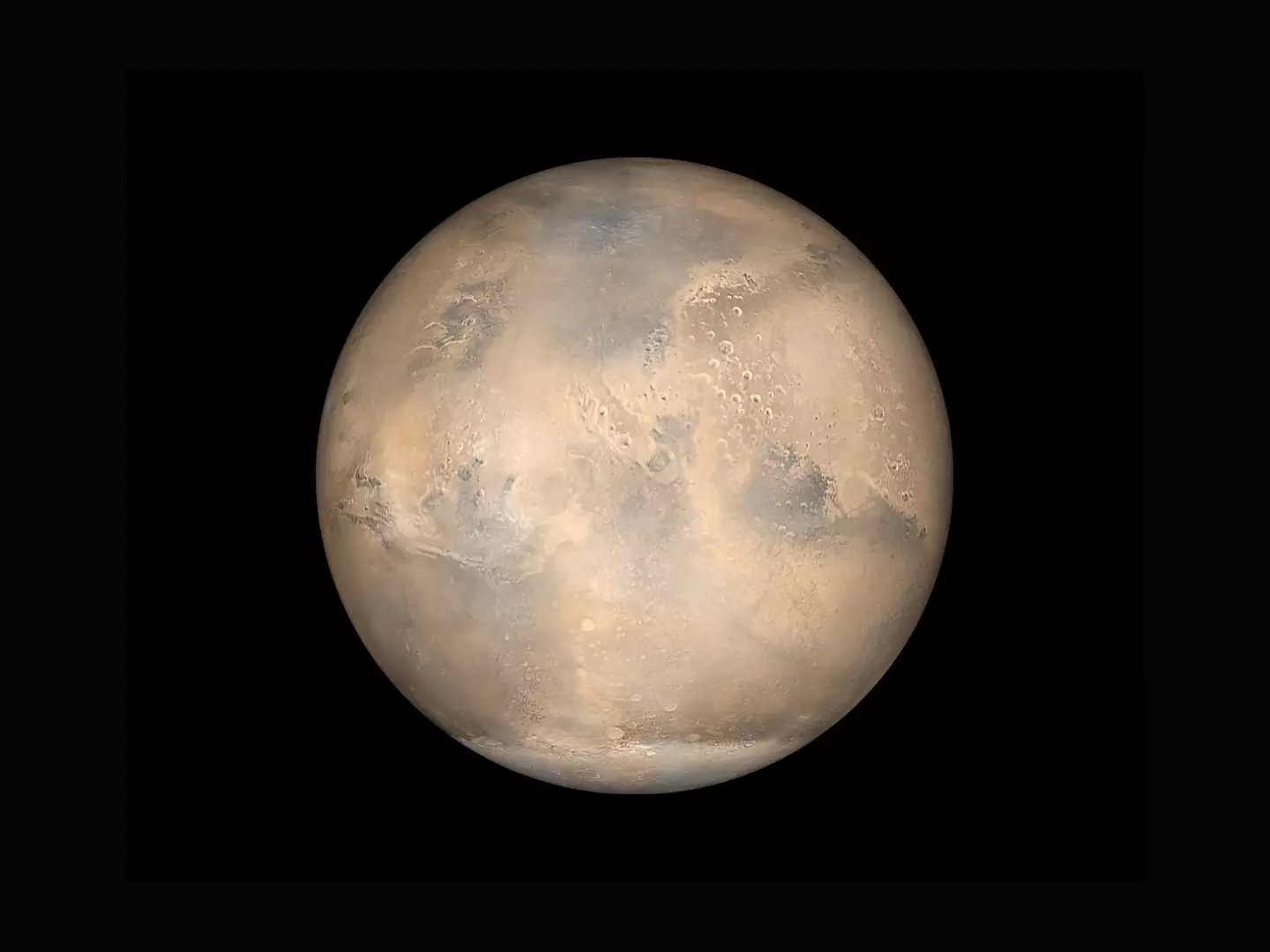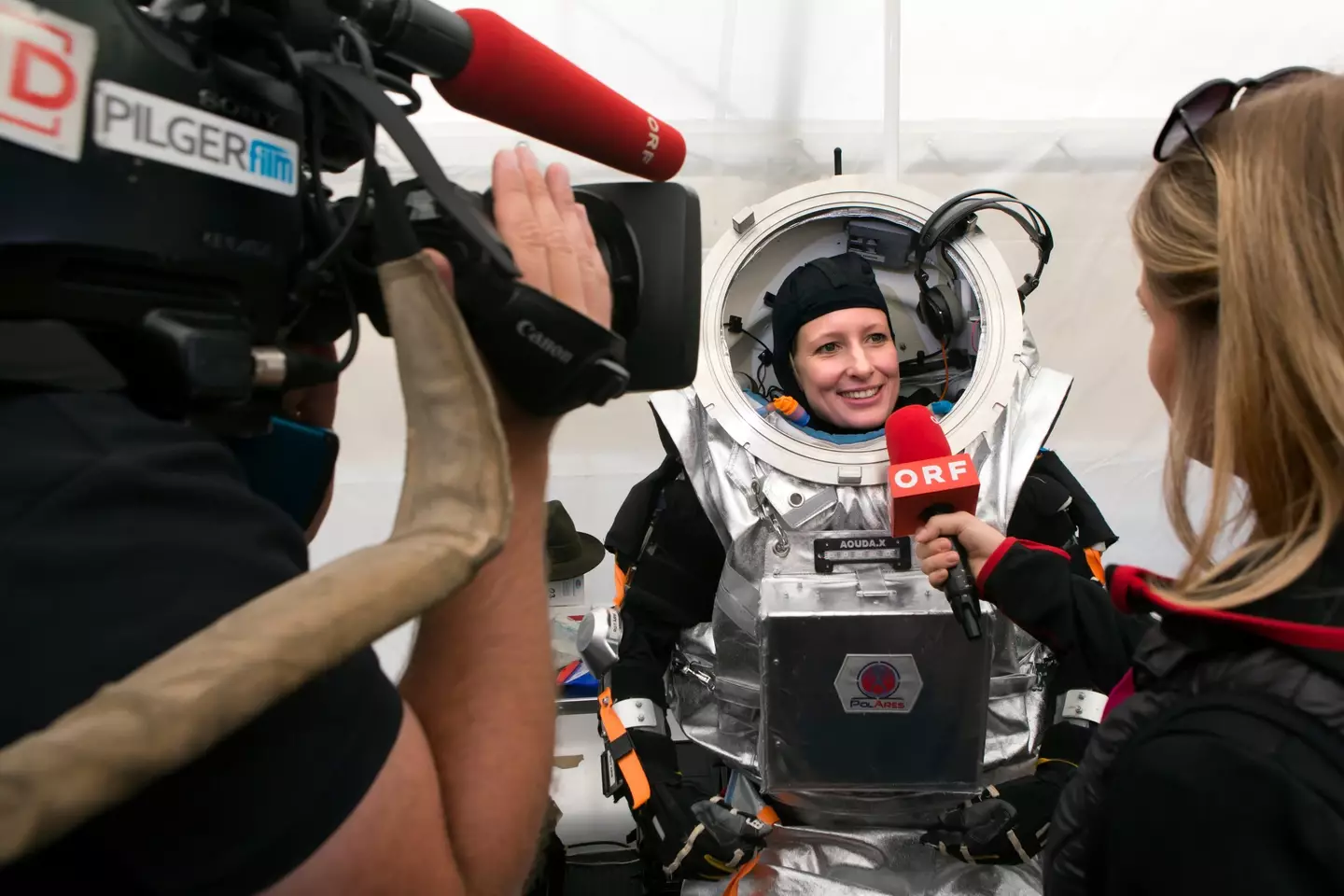
Mars Needs Women (literally), according to a new study.
NASA has a very good reason to send an all-female crew to Mars thanks to an incredible new study about space missions.
The US-based space agency is set to launch a human mission to Mars and the scientists behind it may want to take a look at the new research which suggests women would be the best astronauts for the job.

Researchers from Space Medicine Team, European Space Agency in Germany (ESA) found that women are more efficient than men plus they exude less energy and need fewer resources in comparison.
Advert
According to the study, which was published in Scientific Reports, women consume less oxygen, produce less carbon dioxide and require less food than men, too.
Because women tend to have smaller frames compared to men, researchers believe an all-female crew will take up less space in the capsule and therefore create more room for things like the life support systems needed for the journey.
Researchers simulated a mission lasting 1,080 days with four women astronauts and found they needed 3.736 pounds less food. This saved more than $158 million, which is an eye-watering amount of money.

The journey to Mars is about 300 million miles (480 million kilometers) away, aka about seven months. As the race to get humans on the Red Planet increases, researchers are urging space agencies to consider the data to reduce the mass and volume of food needed for the trip into outer space, as it would need to be stored for the seven-month trip.
Advert
As of March 2023, 72 women have flown to space, according to NASA, out of the 622 who have left the Earth in total.
NASA has sent 355 people in total to space so far, of which 55 have been women which is 15 percent.

Soviet cosmonaut Valentina Tereshkova was the first woman in space in 1963, while the first American woman to do so happened two decades later in 1983 when Sally Ride flew to space.
Advert
Before sending women to Mars, NASA announced last month that Christina Koch will be the first woman to reach the moon as she was named in the Artemis II crew announcement. Artemis II is expected to launch in November 2024.
In other space news, SpaceX CEO Elon Musk has previously spoken about his intent to fly humans to Mars by 2029.
Topics: Space, Technology
